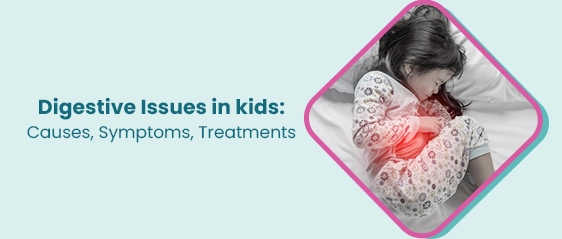
Everything You Need to Know About Premature Birth
- 14 Aug 2023
Bringing a new life into the world is a momentous journey filled with anticipation and excitement. However, sometimes circumstances arise that lead to a premature birth, a term used when a baby is born before the completion of 37 weeks of pregnancy. Premature birth can bring about unique challenges and considerations for both the baby and the parents. In this comprehensive guide, we'll delve into the various aspects of premature birth, from its causes and risk factors to the potential complications and ways to support the well-being of both the baby and the family.
Understanding Premature Birth
Premature birth is a complex and multifaceted issue that can occur for a variety of reasons. The exact cause of premature birth is often unknown, but certain factors increase the likelihood.
These include:
- Multiple Pregnancies : Carrying twins, triplets, or more increases the risk of premature birth.
- Previous Preterm Birth : A history of preterm birth can elevate the risk of subsequent pregnancies.
- Chronic Conditions : Conditions like diabetes and high blood pressure can contribute to premature birth.
- Infections and Chronic Illness : Infections of the uterus, bladder, or kidney, as well as chronic illnesses, can play a role.
- Uterine and Cervical Issues : Problems with the uterus or cervix may lead to premature birth.
- Lifestyle Factors : Smoking, drug use, and inadequate prenatal care can increase the risk.
Potential Complications
Premature birth can result in a range of complications for the newborn, including:
- Respiratory Distress Syndrome : Premature babies often have underdeveloped lungs, leading to breathing difficulties.
- Developmental Delays : Premature infants might experience developmental delays in motor skills, language, and cognitive abilities.
- Infections : Premature babies have a higher risk of diseases due to their immature immune systems.
- Jaundice : The liver of a premature baby might not be fully matured, leading to jaundice.
- Necrotizing Enterocolitis : This is a serious intestinal condition that can affect premature infants.
Supporting Premature Babies and Families
- Neonatal Intensive Care Unit (NICU) : To meet their special demands, premature infants frequently need specialized care in the NICU.
- Kangaroo Care : Skin-to-skin contact with the parent, known as kangaroo care, can aid in the baby's development and bonding.
- Breastfeeding : Whenever possible, breast milk is crucial for the health of premature babies, offering essential nutrients and antibodies.
- Emotional Support : The journey of having a premature baby can be emotionally challenging for parents. Seek support from family, friends, and professionals.
- Long-Term Care : Premature babies might require ongoing medical attention and developmental monitoring.
Preventing Premature Birth
While some risk factors are beyond control, certain steps can be taken to reduce the likelihood of premature birth:
- Prenatal Care : Attending regular prenatal check-ups and following your healthcare provider's guidance is crucial.
- Managing Chronic Conditions : If you have diabetes, high blood pressure, or other chronic conditions, manage them under medical supervision.
- Lifestyle Changes : Quit smoking, avoid alcohol and drugs, and maintain a healthy lifestyle.
- Recognize Early Warning Signs : Be aware of signs like contractions, changes in vaginal discharge, and pelvic pressure. Seek medical attention if you experience these.
- Discuss History : If you've had a preterm birth previously, discuss it with your healthcare provider for tailored care.
Conclusion
Premature birth presents an intricate and demanding path that affects infants and families deeply. Although the causes are not always avoidable, awareness and proactive measures can yield an impact. Through comprehending risk factors, possible complexities, and existing support structures, parents can confront premature birth's hurdles with insight and resolve. It's essential to acknowledge that premier women and child hospitals, along with support groups and families, all contribute significantly to empowering premature infants and fostering resilience amid this unforeseen
Frequently Asked Questions
1. What is premature birth?
Preterm birth, commonly referred to as premature birth, is the birth of a child before the full 37 weeks of pregnancy have passed.
2. Why does premature birth happen?
Premature birth can happen for various reasons, including multiple pregnancies (twins, triplets), infections, chronic conditions such as diabetes and high blood pressure, problems with the uterus, cervix, or placenta, and lifestyle factors like smoking, drug use, and poor nutrition.
3. What are the risks associated with premature birth?
Respiratory distress syndrome, developmental delays, cerebral palsy, issues with their eyesight and hearing, as well as even mortality, are more common in premature infants.
4. How is premature birth diagnosed?
Premature birth can be diagnosed through regular prenatal care and monitoring by healthcare professionals. Signs of premature labor include regular contractions, lower backache, pelvic pressure, and changes in vaginal discharge.
5. Can premature birth be prevented?
Even though not all cases can be prevented, there are things you can do to reduce your risk, like going to frequent prenatal checkups, controlling chronic diseases, quitting smoking and using drugs, and leading a healthy lifestyle.
6. How is premature labor treated?
If premature labor is detected, doctors may administer medications to slow or stop contractions, provide steroids to help the baby's lungs mature, and recommend bed rest or hospitalization if necessary.




